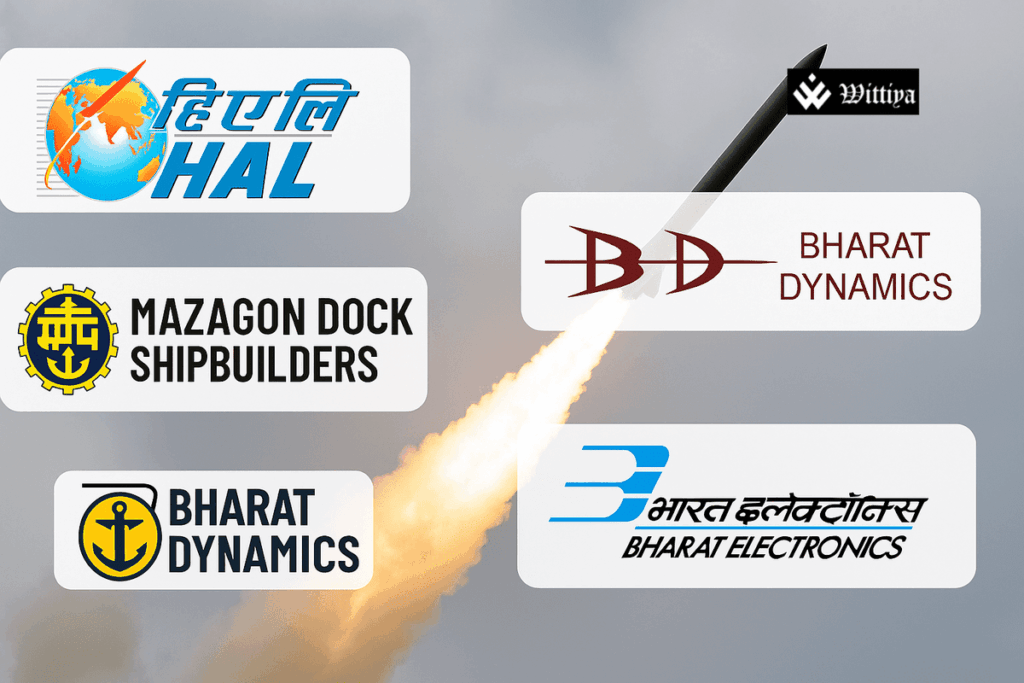Indian defence stocks such as Hindustan Aeronautics (HAL), Bharat Dynamics, and Mazagon Dock Shipbuilders saw little movement on May 7, 2025, despite rising tensions between India and Pakistan following India’s missile strikes under “Operation Sindoor.” Experts note that geopolitical risks, profit-booking, and high valuations have kept investors cautious
Despite escalating tensions between India and Pakistan following India’s missile strikes under “Operation Sindoor,” Indian defence stocks remained largely flat on May 7, 2025. Companies such as Hindustan Aeronautics Limited (HAL), Bharat Dynamics, Mazagon Dock Shipbuilders, and Bharat Electronics showed little movement in early trading.
On the BSE, shares of these major defence contractors were trading flat as of 11:30 AM, reflecting cautious sentiment among investors. Analysts noted that these stocks had already seen a significant uptick in recent sessions, particularly following the Pahalgam terror attack. This resulted in a potential profit-booking scenario or a “wait-and-watch” approach, with investors wary of the ongoing geopolitical risks.
On May 7, 2025, India carried out missile strikes in Pakistan-administered Kashmir, targeting locations allegedly used for militant infrastructure. This action was a direct response to the April 22 attack in Pahalgam, Kashmir, which resulted in the deaths of 26 Indian tourists. Despite the gravity of the situation, analysts believe that India’s strikes were targeted and calculated, with the focus being on minimizing escalation.
Dr. Vikas Gupta, CEO and Chief Investment Strategist at OmniScience Capital, stated, “Defence companies have large order books, which will only grow larger. Operation Sindoor is likely to put the spotlight on execution, with companies possibly facing aggressive targets. This could boost revenues in the coming quarters.”
However, despite the intense situation, the Indian stock market has shown resilience. The broader market remained range-bound on May 7, with investors focusing on regional market trends and upcoming global developments. In contrast, Pakistan’s stock market saw a sharp drop, with its benchmark KSE-30 Index plunging by 6.1%, reflecting investor panic and uncertainty.
Experts such as V.K. Vijayakumar, Chief Investment Strategist at Geojit Financial Services, emphasized that the retaliatory nature of India’s missile strikes has already been priced into the market. “The market is unlikely to react further, as the strikes were focused and calculated,” he explained.
At the same time, the UK-India Free Trade Agreement is offering optimism for the Indian stock market. Analysts also pointed to regional economic stimulus measures, including China’s economic stimulus packages, which provided additional support to Indian equities.
Despite the geopolitical tensions, India’s markets continue to attract global investors. Foreign Portfolio Investors (FPIs) have remained net buyers for 14 consecutive sessions, pumping in ₹43,940 crore into Indian equities, a testament to the country’s resilience amidst global uncertainties.
